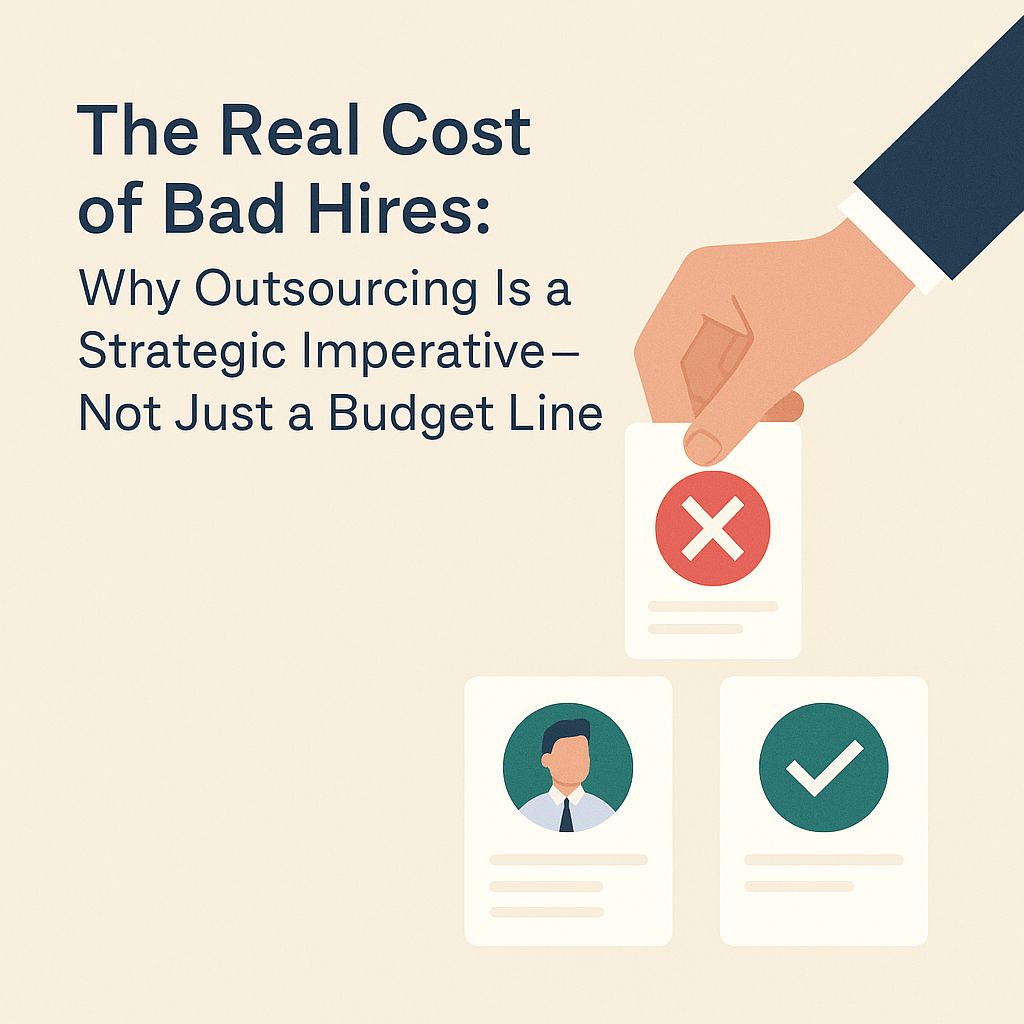
“If you think it’s expensive to hire a professional, wait until you hire an amateur.” — Red Adair
Every CEO knows that people are the lifeblood of any business. Yet in boardrooms across Africa, and indeed across many parts of the world, discussions about talent still tend to focus on two things: headcount and cost.
But here’s the hard truth: what you save in hiring today could quietly cost you your business tomorrow.
Whether you’re running a growing SME or leading a complex enterprise, the impact of hiring the wrong person rarely shows up on your balance sheet right away, but it shows up everywhere else.
And in Nigeria’s uniquely challenging business environment, where agility, compliance, and operational resilience are already under pressure, the margin for hiring errors is shrinking fast.
So, What Does a “Bad Hire” Really Cost You?
On paper, it might seem like a bad hire is just a few wasted months of salary. But in reality, it’s a cascading loss that goes far deeper, and lingers far longer.
Let’s break it down.
- Productivity Drain: A poor performer does not just underdeliver; they slow everyone else down. Work gets redone. Deadlines shift. Momentum stalls.
- Team Morale: Even one toxic or underperforming employee can pull down the energy of your high performers. And when your best people start mentally checking out, the business silently bleeds value.
- Customer Confidence: If the role is client-facing, the damage is exponential. One misstep can erode trust, harm your reputation, and cost you contracts you may never win back.
- Management Fatigue: When senior leaders spend their time micromanaging, correcting errors, or repeatedly onboarding replacements, they’re not leading; they are firefighting.
Now add Nigeria’s layered complexity, power interruptions, regulatory bottlenecks, fluctuating currency, and market uncertainty, and you realize: a bad hire is not just a personnel issue, it’s an operational risk.
Why We Must Rethink Outsourcing
Outsourcing is not, and should never be, just a cost-cutting measure.
Yes, there are savings to be had. But the smarter companies have figured out that outsourcing is not about reducing cost, it is about increasing capability.
When done right, outsourcing becomes a scalable engine for quality, flexibility, and strategic continuity.
What the Right Outsourcing Partner Brings to the Table:
- Pre-vetted talent pools, trained and ready for deployment
- Performance accountability, built into the service model
- Quick replacement protocols, ensuring zero operational downtime
- Regulatory compliance, especially with Nigeria’s evolving labor laws
- Role-specific training, tailored to your business context
In essence, the right partner is not just sending you people, they are helping you build a workforce you can trust.
Talent Is Not Just HR’s Problem. It’s a Business Continuity Issue.
This is one of the biggest mindset shifts leaders need to make. If your supply chain goes down, your business suffers. If your systems crash, it’s a crisis.
But when your people underperform? Too many organizations tolerate it, or worse, fail to see it, until it’s too late.
Your workforce is your operating system, and if it’s running on outdated, inefficient, or misaligned talent, you cannot scale properly.
This is why progressive executives are no longer asking, “How much will it cost to outsource?”, they are asking, “What will it cost me not to?”
Three Questions Every Business Leader Should Reflect On:
- When last did you audit your hires? Did they deliver clear value, strategically or operationally, within the first six months?
- Is your outsourcing partner proactive or reactive? Are they anticipating your business needs or simply responding to emergencies?
- Can your current hiring model support your next growth move? If your business doubled in size or entered a new market, would your people strategy hold up?
Final Thoughts: The Cost of Inaction
The real cost of a bad hire is not just about what they are paid. It is about what they delay, derail, or destroy.
In today’s world, you can no longer afford to treat talent as a back-office function. Talent is the business, and that’s why outsourcing, when done with intention and with the right partner, is not a shortcut; it is a strategic investment in your company’s future.
References

